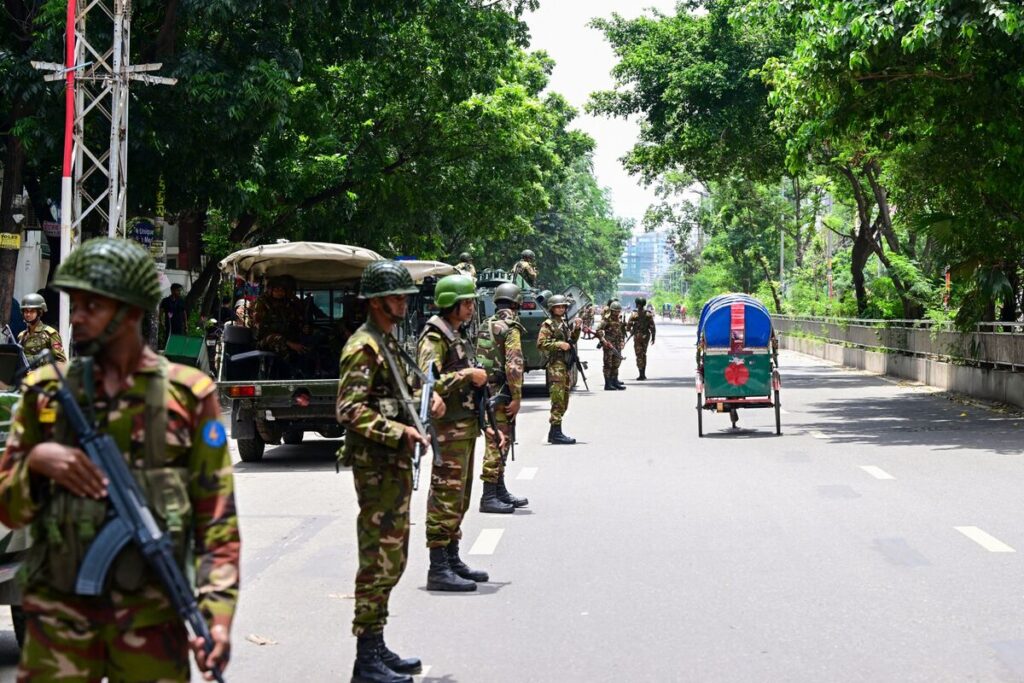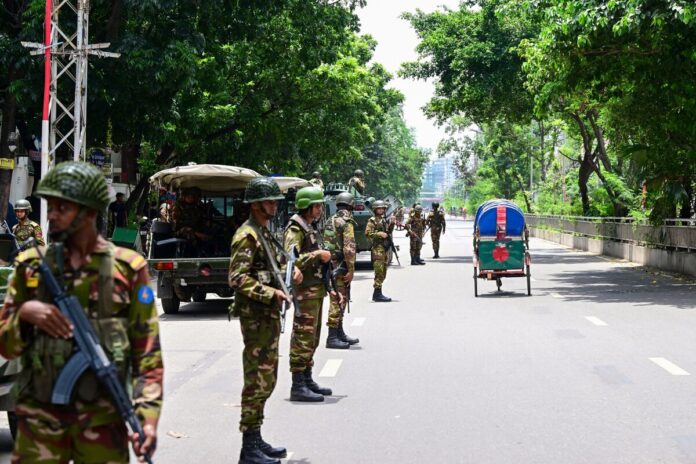
July 25, 2024 In the wake of violent student protests over civil service employment quotas, authorities in Bangladesh have eased the curfew that was imposed to control the unrest. The easing of restrictions has allowed garment factories and banks to resume operations, although internet access remains limited as the country grapples with ongoing disturbances.
The curfew was imposed last week after clashes erupted, resulting in at least 186 deaths, according to an AFP count of victim reports from police and hospitals. The violence marked some of the most severe unrest during Prime Minister Sheikh Hasina’s tenure.
As calm returns to the streets, the government has allowed the reopening of essential services. Garment factories, crucial to Bangladesh’s economy, have resumed operations following government approval. The textile industry, which generates $50 billion annually in export revenue and employs millions, was significantly disrupted by the violence. The Bangladesh Garment Manufacturers and Exporters Association confirmed that factories across the country are back in business.
Khatun, a 40-year-old factory worker, expressed relief at the resumption of work but remained supportive of the student protesters’ demands for government hiring reforms. “The government should implement all their demands,” she told AFP, noting the high cost of the protests in terms of lives lost.
In addition to garment factories, banks and the stock exchange in Dhaka have reopened between 10:00 am and 3:00 pm. Some government offices are also operating within this timeframe, as authorities adjust the curfew to balance security with economic needs. The curfew remains in effect for most Bangladeshis for 19 hours each day.
The student group behind the protests has temporarily suspended demonstrations, stating they did not seek reform “at the expense of so much blood.” Police have arrested approximately 2,500 people since the violence began. The Supreme Court recently reduced the number of reserved jobs under the controversial quota scheme but did not meet all the protesters’ demands for its complete abolition.
The reintroduction of the quota system, which had been suspended since 2018, has sparked widespread dissatisfaction among graduates facing a severe job crisis. Critics argue that the quota system is used to favor loyalists of Hasina’s Awami League, exacerbating concerns about job fairness and political patronage.
While broadband internet services are being gradually restored, mobile internet remains largely inoperative, affecting communication and coordination for protest organizers. Internet connectivity across the country is still at around 20 percent of normal levels, according to data from the US-based monitor Netblocks.
As the situation stabilizes, the government has indicated that further relaxations of the curfew may be considered. Prime Minister Hasina’s administration, which has faced criticism for its handling of dissent and its control over state institutions, will continue to monitor the situation closely.
Sources By Agencies



